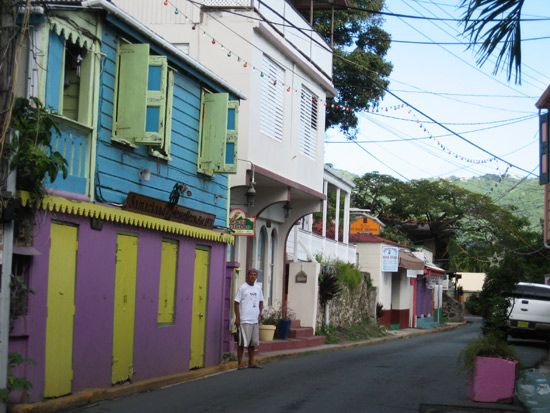Either I’m a masochist, or I enjoy sleeping sitting up on twelve-hour trans-Pacific flights. On a visit to Tortola to ring in 2010, I realize that I have been running away from bitter, northeastern American winters to beaches on the other side of the world while warm paradise was just a short four and a half hours away.
Despite this proximity, Tortola seems like a world away. One of the small British Virgin Islands in the Caribbean Sea, it has one traffic light, chickens running around freely, and the slow island vibe I desperately crave after hustling through New York City’s rat race. Even language is spoken slower in Tortola. Who can be bothered with verbs or tenses? As I settled into the sun-and-sea lifestyle, I quickly realize I can’t.
I come to visit my cousin Branson, who is actually a belonger. “Belonger” is the word used to describe citizens of Tortola. Branson’s mom is American and his dad is British, but they happened to be living there when he was born. He is blond and blue-eyed and has spent many years living in other parts of the world, so he’s not your typical Tolan (as the locals are called).
Continue reading Finding the Belongers- Follow us on Twitter: @inthefray
- Comment on stories or like us on Facebook
- Subscribe to our free email newsletter
- Send us your writing, photography, or artwork
- Republish our Creative Commons-licensed content


